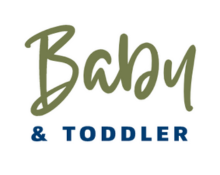
A good breastfeeding latch is important for effective milk transfer and a comfortable feeding experience for both you and your baby. Here are some signs to look for to determine if your baby has a good latch:
Deep latch: Your baby’s mouth should be wide open, with their lips flanged outward. They should have a large portion of the areola in their mouth, not just the nipple. A deep latch ensures that your baby is effectively removing milk from the breast and helps prevent nipple soreness.
Chin touching the breast: Your baby’s chin should be pressed against your breast, with their nose slightly away from the breast. This positioning allows for proper alignment of their mouth and ensures they can breathe comfortably while breastfeeding.
Symmetrical latch: When your baby is properly latched, their mouth should be centered on the breast, and their head and body should be facing towards you. Their nose, chin, and body should all be in alignment, creating a straight line.
No clicking or smacking sounds: During a good latch, you should hear a rhythmic sucking and swallowing pattern. If you hear clicking or smacking sounds, it may indicate that your baby is not latched properly and is not effectively removing milk.
Comfortable breastfeeding sensation: A good latch should feel comfortable for you. While it’s normal to feel some initial tenderness in the early days of breastfeeding, pain or discomfort that persists throughout the feeding session is not normal and may indicate a poor latch.
Baby’s cheeks are rounded: When your baby is effectively latched, their cheeks will be full and rounded as they actively suck and swallow. Their cheeks should not be sucked in or dimpled, which could suggest an inadequate latch.
Baby’s body relaxed and calm: A baby with a good latch will appear relaxed and content while nursing. Their body should be relaxed, and they should exhibit rhythmic sucking and swallowing motions.
Remember, it may take some practice to achieve a good latch, especially in the early days of breastfeeding. If you’re experiencing difficulties or discomfort, don’t hesitate to seek guidance from a lactation consultant or healthcare professional. They can provide hands-on support and help you and your baby achieve a successful breastfeeding experience.
